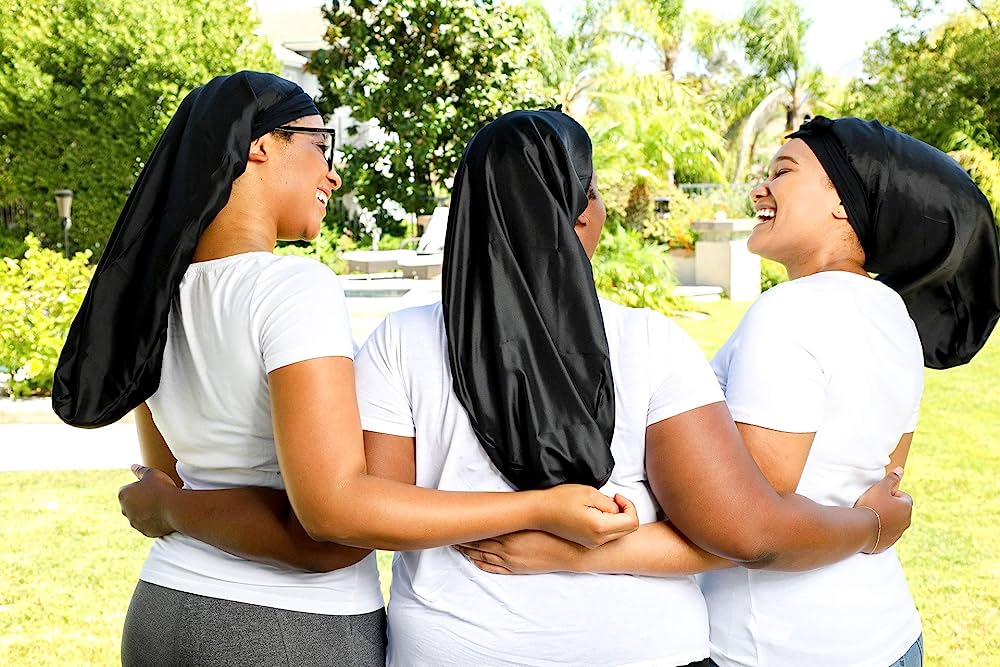Winter is in full effect, and while there are plenty of things to love about the seasonal change like new boots, cozy knits and festive activities, the cooler weather can hinder our everyday hair care routine. Depending on where you are, drastic temperature changes can mean more frizz, less definition, and a whole lot of frustration. So save yourself the anguish and get ahead of disaster by trying these hot tips to keep your curly and kinky hair looking and feeling beautiful this winter.
1. Seal with Oil
This may seem counterintuitive, especially if you live in a cold, damp climate, but the truth is, dampness causes frizz, and humidity is not the sort of moisturization your hair needs. For lighter curls or kinky hair, using a light weight plant-based oil like extra-virgin coconut. For tighter curls or kinks, avocado or jojoba oil can prevent curls from dropping, while keeping them moisturized.
2. Use a Deep Conditioning Heat Cap
Depending on how dry your hair is naturally, deep conditioning your hair regularly will help your curls retain their moisture. A thorough deep conditioning treatment can take up to an hour, and we don’t always have that time to just sit and give ourselves that time for self-care. A deep conditioning heat cap allows you to apply your favorite product, seal it in with a heat cap, and go about your evening until that rinse timer goes off. Consider the battery-powered GLO Heat Cap for ultimate convenience.
3. Stay Away from those Sulfate-Filled Shampoos
Before you toss that shampoo or conditioner into your basket at the beauty store, take a good look at those labels and the list of ingredients. If you’re finding things like sodium lauryl sulfate or ammonium laureth sulfate, you’re going to want to put that back on the shelf. Sulfates cause dryness, breakage, and overall hair weakness in kinky, curly and textured hair. Instead, opt for gentle cleansers, or utilize pre-shampoo treatments prior to using a clarifying shampoo. Cleansers that have ingredients like apple cider vinegar and nourishing oils are far better for your hair.
4. Nourish Your Body
There is a common disconnect between what we eat and how it presents physically on our body, and specifically our hair. An unbalanced diet could mean thinning hair, breakage, split ends, hair loss, and/or lack of hair growth. Our hair is made up from keratin (protein filaments) and amino acids. Make sure you’re getting in those healthy protein sources like eggs, beans, fish, and poultry.
5. Easy on the Heat Styling
This may be tough if you’re good friends with your heated styling tools, but when the fall and winter seasons hit, those cooler temperatures can dry out your hair severely and cause split ends. When you’re blow drying your hair in the morning, always use a diffuser, dry your hair in short blasts, and consider just focusing on your scalp or the midsection of your curls. Your ends can be sealed with oil and left to dry on their own.
6. Trim Those Ends
One of the best ways to protect your curly or kinky hair during winter is to keep those ends trimmed and healthy. Split ends left unmanaged will end up damaging the entire hair shaft, which leads to excess frizz and there is very little you can do to retain curl definition after that. Give your ends a thorough inspection and schedule a trim every 12-16 weeks, or when those single-strand knots are too much to handle.
7. Use Satin Scrunchies Wherever Possible
Curly and kinky hair is more susceptible to breakage than any other type of hair. Twisting your hair up with a simple elastic may seem harmless but over time you’ll cause extensive damage to your hair’s midsection, create unsightly creases in your hair and cause breakage. Whether you’re wearing your hair in a protective style, or want to keep it out of your face, use a satin scrunchie instead of metal pins or elastics. Check out GLO Scrunchies for durable wear but gentle on the hair.
The fall and winter seasons does not have to cause hair drama if you know what to watch out for, what products you should be using, and how changing a few things in your daily routine can make all the difference. The key takeaways here are to keep a balanced diet, avoid harsh chemicals, focus on sealing moisture in your hair, and avoid excess heat.




